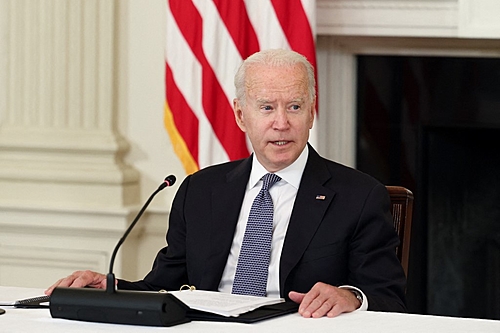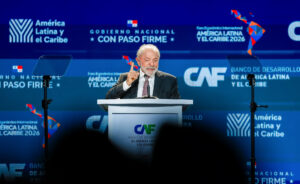
On January 20, it will be two years since the administration of Democrat Joe Biden took office in the White House. The Democratic Party, led by one of its most conservative branches, returned to the country’s executive power with the promise and the illusion of reversing the corrosive era of Donald Trump who, in just four years, had brought about a series of substantial changes both in domestic politics and in global politics. Transformations that culminated in the invasion of the Capitol on January 6, 2021 and the refusal of Trumpism to accept its electoral defeat until today.
During his presidential campaign, Biden sharply criticized the measures his Republican opponent was implementing against Cuba. He even vowed to reverse Trump’s “failed policies that have hurt Cubans and their families.”
During the administration of Barack Obama (2009-2017), the US had implemented a series of policies that reduced its hostilities towards the island. The objective of these policies was to re-establish dialogue, as well as possible negotiations, between Washington and Havana, although without dismantling the blockade that still remains in force. Among the most important rapprochement measures during this period were the withdrawal of Cuba from the list of “Sponsors of Terrorism” – a list drawn up by the US State Department that included Cuba since 1982 – as well as the re-establishment of embassies both in the Caribbean country as much as in the United States.
However, the tenuous attempts at rapprochement with Cuba were immediately reversed by Trump. His government not only recomposed the set of hostile measures against the island, but also significantly increased unilateral coercive actions, applying 243 new measures against Havana.
This situation has taken on a particular drama in the global context of the covid-19 pandemic. In the midst of the fight against the scourge that was plaguing the world, Cuba was blocked from entering the country of medical supplies and sanitary tools to fight the pandemic.
Soberana 2, a vaccine developed in Cuba / Reproduction
It was in this context that Biden’s campaign promises managed to awaken, in broad progressive and democratic sectors, the hope that the policy of “unfreezing” with Cuba would be resumed. However, after taking office, Biden’s political team delayed the implementation of his campaign promises regarding the island, arguing that the measures to be adopted were in a “study phase”.
Some of the reasons for this delay can be attributed to tensions in domestic US politics. In addition to the strong rejection of the republican opposition to the reestablishment of dialogue with Cuba, there was an internal division within the ranks of the democratic party since there is no consensus on the matter.
A few weeks after Biden’s inauguration, on March 4, 2021, a group of 80 Democratic congressmen from the House of Representatives wrote a letter in which they asked the president to abandon the sanctions that Trump had implemented against Cuba, describing them as ” cruel”. However, the executive’s response would come five days later. At a news conference, when asked about the letter, presidential spokeswoman Jen Psaki said that “a change in policy toward Cuba is not currently among President Biden’s top priorities.”
Weeks later, the US maintained its traditional rejection of what was expressed by the international community through the UN General Assembly held on June 23, 2021. With 184 votes in favour, three abstentions and the traditional two votes against from the United States and Israel , the resolution entitled “Need to end the economic, commercial and financial embargo imposed by the United States of America against Cuba” was once again approved.
Internal conflicts in Cuba also played a considerable role in maintaining the US policy of “maximum pressure”. The recent protests recorded on the island were used as a pretext by the US government to continue its blockade policies. Thus, Cuba went from being one of Biden’s priorities to being a major concern.
Even so, popular movements pressured the White House to end the blockade against Cuba. On July 15, 2021, the Black Lives Matter movement published a statement on its social media demanding an end to the blockade of Cuba, which, in its words, “was instituted with the explicit intention of destabilizing the country and undermining the right of Cubans to choose their own government”.
In October 2021, leaders of the World Council of Churches (WCC) sent a letter to Biden urging him to make the “bold decision” to end the financial and trade embargo against Cuba. And finally, in December of the same year, a hundred democratic congresswomen resubmitted a letter to the president, inviting him to re-establish dialogue with Cuba, address humanitarian needs and make progress in normalizing relations with Havana. Biden’s first year in office has concluded.
During 2022, although Biden did not substantially modify the government’s attitude, he was forced to introduce some changes. Externally, the outbreak of war in Ukraine kept the external apparatus of the White House focused on building what would be the updated “strategic concept” of NATO, which at its summit in Madrid placed China and Russia as its main enemies. Domestically, rising national inflation to its highest level in 40 years, combined with Biden’s declining popularity – the fastest decline in image since World War II – has led the government to adopt a policy conservative towards Cuba in an election year.
Nevertheless, after 17 long months of a “policy review”, during which the measures introduced by Trump against Cuba remained intact, the State Department announced in May that it would relax some measures linked mainly to migration. Why was this announcement made?
On the one hand, the threat of several Latin American governments to boycott the 9th Summit of the Americas if Cuba was excluded put pressure on US foreign policy. He showed once again that it would not be so easy to disengage from the “Cuba question”. On the other hand, the worsening of the migratory crisis on the island – a result of the crisis induced by the blockade itself, in addition to that produced by the pandemic – has made the migratory crisis on the southern US border worse.
It was in this context that the bilateral migration talks were resumed. The reopening of flights by US airlines to the interior of the island was announced. Dialogue between the US Coast Guard and Cuban Border Guard Troops was re-established. And the possibility of sending remittances has been announced – although it has not yet been implemented. Cuban Foreign Minister Bruno Rodríguez describes the US embassy’s resumption of issuing immigrant visas as a “positive step”.
However, despite these rapprochement steps, on December 2, 2022, the US State Department presented its annual list of “countries that violate religious freedom” into which Cuba was incorporated under the heading of “countries of particular concern”. This makes it possible for the Caribbean country to be subject to new sanctions, in addition to those that already weigh against the island.
Midway through his term, Biden has not reversed policies implemented by Trump against Cuba. However, the next few months will be critical if Washington finally decides to ease sanctions and fulfill its campaign promise. As Cuban political scientist William Leogrande points out, the appointment of former Senator Christopher Dodd as Special Presidential Advisor for the Americas after the midterm elections could be a step in that direction. Dodd has been an advocate of a change of strategy in the relationship with Cuba. However, the political decision will not depend on just one official.
On February 3 of this year, it will be 61 years since the United States began its blockade policy against the island with Presidential Proclamation 3447 by President John F. Kennedy. The purpose of this measure was to punish Fidel Castro’s revolutionary government for its “alignment with the communist powers”, the Soviet Union and the People’s Republic of China, within the framework of the Cold War.
The plan had been meticulously studied by the US government. The then Assistant Secretary of State for Inter-American Affairs, Lester D. Mallory, explained to his superior, in a memorandum dated April 6, 1960, the strategy to be implemented against Cuba: “The only foreseeable means to subtract [de Castro] internal support is through disenchantment and disillusionment based on dissatisfactions and limitations. (…) we must take all measures to weaken economic life in Cuba. (…) to deny him funds and supplies to lower wages and income and thus produce hunger, despair and the removal of the government”.

The presidents of Cuba, Miguel Díaz-Canel, and of the USA, Joe Biden / Saul Loeb, Mladen Antonov / AFP
Since then, the United States has undertaken a complex combination of laws and regulations consisting of various economic, political, communications, and other sanctions. In 1996, the US Congress passed the Freedom and Democratic Solidarity of Cuba Act, which states that the blockade must be maintained until Cuba “becomes a multi-party, free-market democracy and pays compensation for properties nationalized by the Revolutionary Government” .
The blocking policy is a violation of international law. The UN declaration itself states that it is “the sovereign and inalienable right of a State to freely determine its own political, economic, cultural and social systems”. It declares that all States have a duty “to refrain from any action or attempt, in any form or under any pretext, to destabilize or undermine the stability of another State”. That is why, by 30 consecutive votes, the UN General Assembly has voted in favor of an annual resolution demanding that the United States end the blockade. This resolution is systematically disobeyed by the USA.
In the most recent report prepared by the Cuban Ministry of Foreign Affairs on the economic damage caused by the blockade, it was estimated that during the first 14 months of the Biden administration, the damage caused to Cuba reached US$ 6.3 billion. That is, more than US$ 454 million per month and US$ 15 million per day. In the sixty years of the blockade, the economic loss for the Caribbean country is estimated at US$ 154 billion.
Editing: Thales Schmidt
Source: www.brasildefato.com.br

